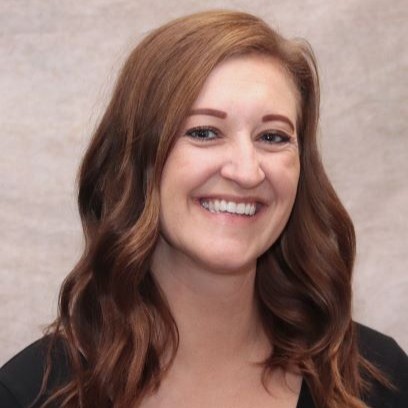 July 25, 2023
July 25, 2023
The Diversity, Equity and Inclusion (DEI) Spotlight is a new periodic feature that will highlight people, organizations, programs, or projects that are making a difference in DEI in the economic development world. If you have a suggestion for a future spotlight, send your ideas to us at [email protected].
We’re excited to feature Jenn Brewington for our first spotlight. Jenn currently serves as the Community and Economic Development Director of the City of Victoria. Jenn has been advancing DEI in economic development by promoting entrepreneurship and business development among underrepresented groups by providing resources, mentorship, technical training, grants, and funding to individuals who may face systemic barriers to accessing traditional business development opportunities. Below, Jenn shares some of the insights she has learned from doing this important work in her community.
How do you define Diversity, Equity, and Inclusion (DEI)? What exactly do you mean when you say “DEI”?
DEI refers to the collective effort of creating an environment where everyone is valued, respected, and empowered, regardless of their differences.
What is one piece of practical advice you would provide to someone starting out?
My advice would be to approach the work with humility and a willingness to learn. This means acknowledging that you don't have all the answers and that you may make mistakes along the way. It also means actively seeking out feedback from colleagues, community members, and other stakeholders, and being open to making changes based on that feedback.
Additionally, it's important to be patient and persistent in your DEI efforts. Building a more inclusive and equitable organization or community is a long-term process that requires ongoing commitment and effort. It's important to celebrate small wins along the way, while also recognizing that there is always more work to be done.
Finally, it's important to collaborate and build partnerships with others who share your commitment to DEI, both within and outside of your organization or community. Together, you can create meaningful and sustainable change.
What strategies have you found effective in fostering a more inclusive organization?
Establishing clear policies and procedures: Clear policies and procedures that promote diversity, equity, and inclusion can set expectations for behavior and help ensure that everyone in the organization is held accountable for creating an inclusive environment. I would recommend to regularly review company policies to ensure they are fair and equitable for all employees. This may include flexible work arrangements, parental leave policies, and accommodation for religious or cultural practices. Your organization could also conduct a pay equity analysis to ensure compensation is fair, equitable and free from gender or racial disparities.
Providing training and education: Providing training and education on diversity, equity, and inclusion topics can help increase awareness and understanding of issues related to diversity and promote respectful and inclusive behaviors.
Encouraging open communication: Encouraging open communication and dialogue can help create a culture where people feel comfortable sharing their experiences, perspectives, and feedback. This includes inclusive language in all internal and external communications, including job postings, company website, and marketing materials.
Building a diverse workforce: Building a diverse workforce can help ensure that the organization is more representative of the communities it serves and can bring a variety of perspectives and ideas to the organization.
Promoting inclusive leadership: Leaders who model inclusive behavior and hold themselves and others accountable for creating an inclusive environment can help set the tone for the organization and encourage inclusive behavior at all levels. This will ensure projects, services, programs, and facilities are designed to be accessible and inclusive to all individuals.
Regularly measuring progress: Regularly measuring progress towards diversity, equity, and inclusion goals can help identify areas for improvement and ensure that the organization is making progress towards creating a more inclusive workplace.
Why is DEI so important right now to economic developers?
DEI has become essential in economic development for several reasons. First, it promotes social justice and equality in the community. DEI efforts aim to remove barriers that prevent marginalized groups from accessing resources and opportunities that they need to thrive. When there is equity in the community, people have equal access to education, jobs, and other resources that can improve their quality of life.
Second, DEI is important for economic development because it promotes economic growth. When there is diversity in the workforce and businesses, there is more innovation and creativity. A diverse workforce brings unique perspectives and ideas that can lead to new products and services, creating new jobs and expanding the tax base. Inclusive economic growth is more sustainable in the long term because it promotes collaboration, trust, and mutual respect between different groups of people.
Third, DEI is crucial for economic developers because it helps to attract and retain talent. When people feel welcome and included in a community, they are more likely to stay and contribute to its growth. In contrast, when people feel marginalized or excluded, they are more likely to leave for communities that offer more opportunities and a more welcoming environment.
What are some of the challenges you have faced doing DEI work?
Working on DEI in a community with a lack of diversity can present some unique challenges. One of the main challenges is the lack of diversity, which can make it difficult to understand the experiences of underrepresented groups and to identify the most effective strategies for creating a more inclusive community. Another challenge is the potential for resistance or pushback from community members who may not see the value in DEI work or may feel threatened by efforts to address systemic inequalities. It is important to approach these conversations with empathy and an open mind, while also being firm in the commitment to advancing DEI.